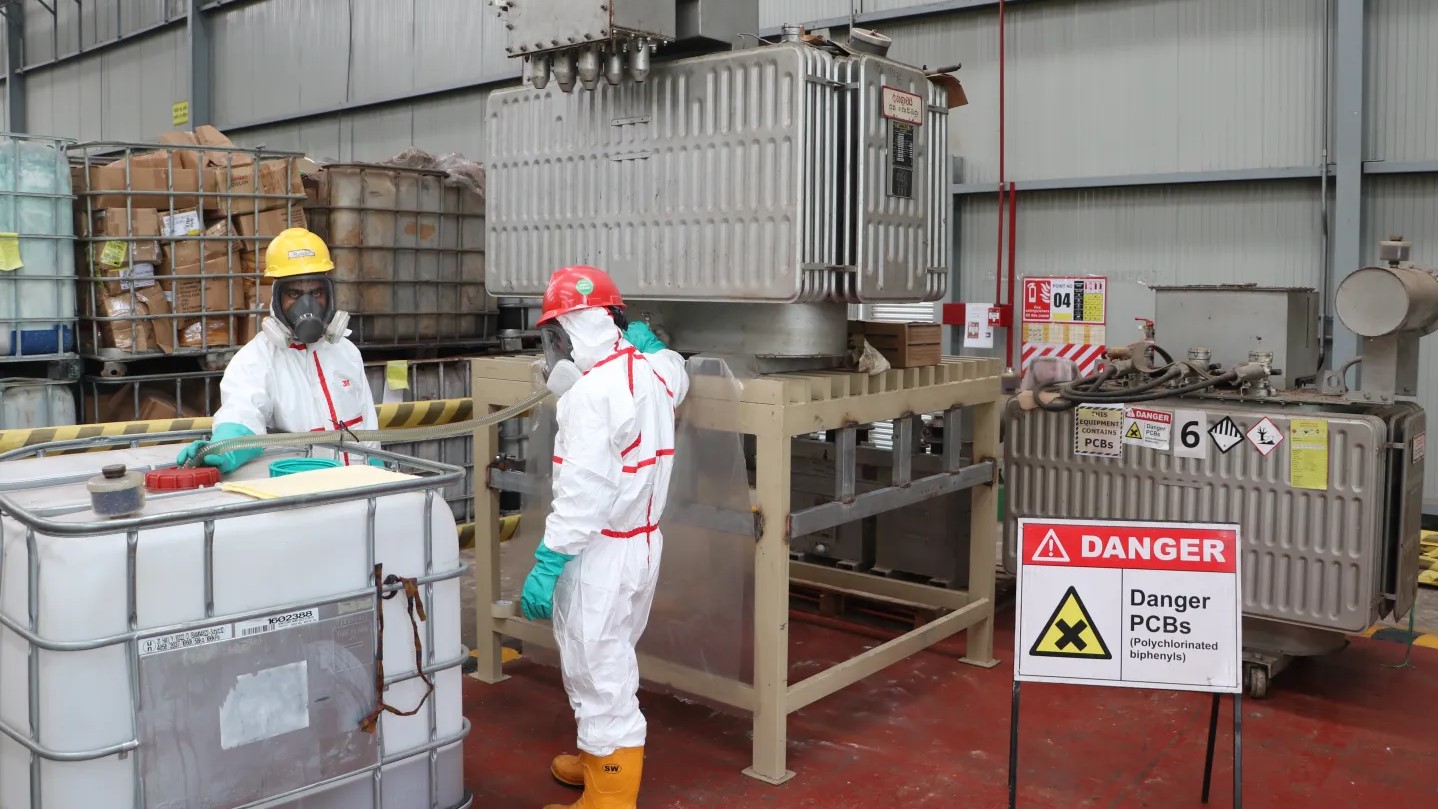UNIDO helps Sri Lanka destroy toxic PCB oil, contaminated equipment in utility and welding sectors
22 February 2024 Charles Arthur

A five-year long UNIDO project, funded by the Global Environment Facility (GEF), has helped Sri Lanka to remove and dispose of oil and equipment contaminated with the toxic, man-made chemicals: polychlorinated biphenyls (PCBs).
PCBs were commercially produced worldwide on a large scale between the 1930s and 1980s. They had many industrial applications, including in electricity transformers and capacitors.
Electricity transformers shift the voltage of an electric current to a level appropriate for usage either for street lighting, by industry or in people's homes. For many years, PCBs were used as transformer oil - due to their stability - to eliminate the heat and sparks generated in transformers, and therefore prevent fires and explosions.
When PCBs were found to be harmful to the environment and human health, production was phased out. The Stockholm Convention on persistent organic pollutants, which entered into force in 2004, obliges countries to eliminate the use of PCBs in equipment by 2025 and make determined efforts to lead to the environmentally sound management of waste liquids and equipment contaminated with PCBs by 2028.
In Sri Lanka, UNIDO has been working with the Ministry of Environment, the Ceylon Electricity Board (CEB) and INSEE Ecocycle organization to remove and dispose of contaminated transformer oil and transformers used by the CEB and contaminated oil and equipment in welding facilities islandwide (see Sri Lanka’s welders learn of dangers of contaminated oil). Almost 600 metric tons of PCB waste and PCB-contaminated equipment from the electricity and welding sectors in Sri Lanka - nearly all of the identified amount - have been destroyed.
At a project closing workshop in Colombo, B.K. Prabath Chandrakeerthi, Secretary at the Ministry of Environment, said, "Sri Lanka is part of the global movement to eliminate the use of PCBs in equipment by 2025, so this is a very important milestone for us as a nation."